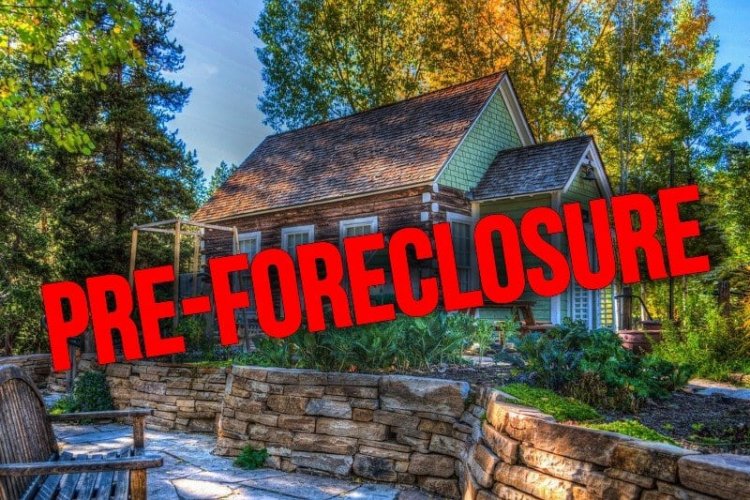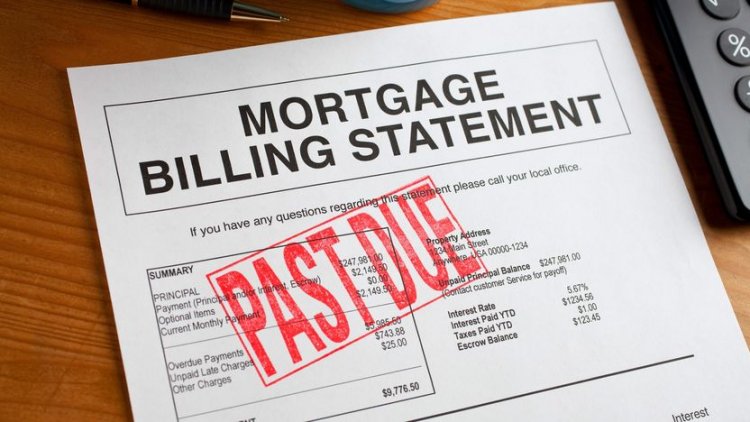Understanding Pre-Foreclosure : To Avoid a Foreclosure Crisis
The best solution for preventing a pre-foreclosure is to always stay ahead of your monthly mortgage payment, however, different circumstances may push one to the verge of a pre-foreclosure.

Having a desired home in mind is one thing; purchasing and relocating to your dream house is another. There are different ways in which one can purchase a house or real estate property. It can be through paying cash, taking a private loan, renting to own, or through a mortgage scheme. Purchasing a home can be a huge financial commitment, and the majority of people may prefer the use of mortgage schemes to cushion them.
For a mortgage loan, the guarantor and lender, mostly banks and other financial institutions, come to an agreement over home ownership. The borrower agrees to pay the lender over a specific duration of time depending on the principal and interest charged, while the property itself acts as collateral. Failure to commit to the payment usually results in lenders repossessing the property and selling the mortgaged property, a process termed foreclosure.
Foreclosure occurs when a homebuyer misses at least three consecutive payments. When the first mortgage payment is missed by the homeowner, the lender sends a missed payment notice indicating that the month's payment hasn't been received. Foreclosure allows lenders to recover the amount owed on a defaulted loan by taking ownership of and selling the mortgaged property of the proprietor.

[File image of a mortgage billing statement. Photo Courtesy]
Amid foreclosure, there is pre-foreclosure as the first phase of the foreclosure process. At this stage, the lender has filed a default notice of the property and notified the homeowner that they have been in default for the past three months, but the property hasn't yet been sold for auction. Pre-foreclosure homes are generally still occupied by their owners, who have simply fallen behind on monthly mortgage payments.
The difference between pre-foreclosure and foreclosure is that under pre-foreclosure, one still has a chance to work with the lender to reach a solution. For instance, through the adjustment of repayment plans to avoid losing the home property,. Failure to negotiate with your lender to achieve a solution for your missed mortgage payments will result in foreclosure, meaning the lender takes back ownership of the property.
When a home is foreclosed, the homeowners are evicted from the house, the locks are switched, and basically, the property becomes listed for sale at a public foreclosure auction. If it doesn't add up under the auction docket, ownership reverts to the lender making it real estate-owned property and the lender arranges to sell it through a private sale.
The best solution for preventing a pre-foreclosure is to always stay ahead of your monthly mortgage payment, however, different circumstances may push one to the verge of a pre-foreclosure such as job loss, financial constraints, marital issues, divorce and health complications. Nevertheless with appropriate and prompt action homeowners facing pre-foreclosure can rescue losing their homes by talking with the lender about repayment plans, seeking loan forbearance, signing a deed-in-lieu of foreclosure, looking at mortgage modifications, settling missed payments and conducting a short sale.
Talking with your lender about repayment plans may rescue you. This can be done by coming to an agreement with your lender to spread out your failed payments into smaller payments and give you a grace period.
Exploring forbearance gives one the pleasure of temporarily stopping paying or reducing one's monthly payment on the mortgage acquired. However, one is entitled to provide evidence promising to sort out the rest of the missed payments through either inheritance acquisition, job salary increment, or property sale.
Signing a deed-in-lieu of foreclosure may be considered the last option to undertake, but it might be worth it to save your home against foreclosure. This is where you come to terms and agreements with your lender to vacate and lose your home to him or her. Consider talking to your lender first to see if they will accept a deed-in-lieu agreement, because if your home is less than what you owe, your lender might require you to make up the difference.
Once you are under the burden of financial constraints, your mortgage lender may be willing to adjust your monthly payment accordingly to an amount that you can manage. However, you have to apply for it the same way one applies for a mortgage. The key demerit of a mortgage modification is that it tends to increase the number of payments to be covered on the mortgage, which may additionally increase the interest cost charged on the loan.
When settling missed payments, homeowners may be pushed to the wall by the lender to seek alternative sources of income, such as seeking financial aid from friends, selling some of their assets, or acquiring private loans to facilitate mortgage payments not made.
Another option that homeowners may try to jump into is to offer to sell their home as a short sale, which guarantees them out of the loan pressure, but they will have to come to terms with accepting a lesser amount than they owe on their mortgage. They ask the financial institution to sell the home for less than what they owe and to forgive the remaining balance.
Bottom line: properties in the pre-foreclosure period have limited merit because they have more downsides than upsides. The risk of losing your home and the additional credit rating are tremendous downsides to pre-foreclosures. However, it can't be forgotten that it is advantageous that it provides alternatives to saving your home when facing financial constraints. As soon as you recognize you might not make your full mortgage payment on time, it will be best to begin working on the solutions mentioned above, as prevention of a pre-foreclosure crisis will always be the best curative remedy for a foreclosure.
If you have a real estate press release or any other information that you would like featured on the African Real Estate Blog Post, do reach out to us via email at [email protected]
































